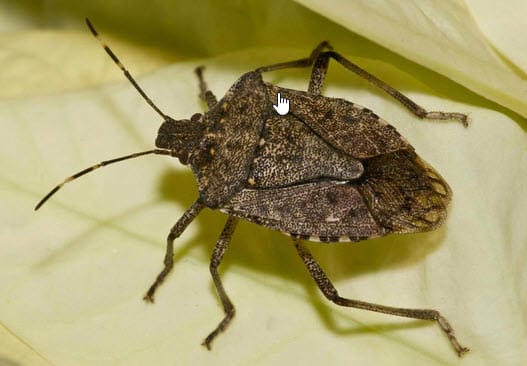
Are Stink Bugs Poisonous? Get the Facts Here
Are you dealing with stink bugs and wondering if they are poisonous? Look no further! Our article provides all the facts and information you need to know about these insects. Say goodbye to stinky worries with Maximum Pest Control Services calling (905) 582-5502.
Stink bugs have an odor that sets them apart. However, this smell is merely a defense mechanism and not an indication of their toxicity. Despite this there are still misconceptions surrounding the harm stink bugs can cause. Are they pests. Should we approach them with caution? Let’s delve into the truth, about stink bug toxicity.
While their name and strong scent may raise concerns, these flat shield shaped insects do not pose a threat. We will uncover the facts regarding any risks to humans or pets. Decode the mystery, behind that smell. Keep reading to gain insight into the level of danger.
Understanding the Behaviour of Stink Bugs
These insects exhibit some interesting behaviours beyond just smelling unpleasant. They are expert over-winters, seeking shelter inside the buildings in mass, vehicles, and even people’s homes as temperatures drop. Once inside, they enter a hibernation-like state until warmer weather returns in spring. Homeowners may suddenly find dozens seemingly appearing out of nowhere as the bugs revive.
Another peculiar stink bug behavior occurs in late summer when adults release a cyclical mate-attraction pheromone. This pungent, intense aroma helps them congregate for mating, but it’s powerful enough that humans can easily detect it too. While not dangerous, it can be startling to catch an unexpected whiff of this foul, cilantro-like smell.
Do Stink Bugs Carry Diseases?
While stink bugs are definitely a nuisance pest, there’s no need for extra concern about diseases. These insects do not carry or transmit any known human pathogens. They simply enter homes seeking warmth for overwintering, not to spread illness.
However, stink bugs can indirectly cause some health issues in rare cases. Their pungent defensive odor contains compounds that may trigger allergic reactions, asthma attacks, or headaches in sensitive individuals after exposure to large amounts. Additionally, accumulated stink bug excrement could potentially contaminate food surfaces if a heavy infestation occurs in kitchen areas. Basic cleanliness prevents any risks.
Can They Bite and Do Stink Bugs Fly?
When necessary can fly because because they possess wings to travel around, while stink bugs are not known to bite humans, they do have mouth parts capable of piercing plant tissues to feed on fruits, vegetables, and crops. The good news is that their mouth-parts are not well-suited for penetrating human skin. Not to worry about them biting since they don’t.
That said, they may attempt to poke their proboscis into exposed skin if given the opportunity, likely mistaking it for a plant surface. This misguided “bite” is harmless and merely feels like a light pinprick. The bugs cannot actually take a bite of flesh or break the skin. As long as you don’t purposely handle stink bugs excessively, any accidental proboscis pokes will be minor and infrequent.
Are Stink Bugs Harmful to Animals?
While they pose little risk to humans beyond their unpleasant smell, pets can face minor health issues if they ingest too many of these pests. Dogs and cats may inadvertently eat stink bugs while grooming themselves after an encounter.
If a pet consumes a large number of stink bugs, they could experience vomiting, diarrhea, and gastrointestinal upset from the noxious compounds released as a defense mechanism. Avoid leaving bowls of pet food out in areas with stink bug activity to prevent accidental ingestion. Contact your veterinarian if you suspect your animal has eaten many stink bugs and appears distressed. Otherwise, a few accidentally eaten bugs likely won’t cause major issues for furry friends.
Controlling Stink Bug Infestations
As nuisance pests, they can quickly become a real hassle if they invade your home or garden in large numbers. While generally harmless, their foul odor and unsightly presence make stink bug infestations highly undesirable. From sealing entry points to exploring Eco-friendly deterrents, here are some effective strategies for controlling these pungent pests.
Exclusion Methods
The best way to avoid stink bug problems is preventing them from getting inside. Seal up cracks and crevices on the exterior of your home using caulk or foam sealant. Pay close attention to utility pipe entry points, vents, and areas where two different building materials meet. Install door sweeps and repair any rips in window/door screens.
Trapping Techniques
Reduce indoor populations by trapping wandering stink bugs. Simple DIY traps use a jar with soapy water or a vacuum hose attachment. Or purchase pheromone lure traps designed specifically for these pests. Place traps near common entry points like windows and doorways.
Organic Repellents
Certain strong-smelling essential oils may help deter stink bugs in garden areas. Try spraying solutions containing oils like neem, garlic, lemongrass or rosemary around affected plants. Catnip is also reported to be an effective natural repellent. Reapply after rain.
Insecticides as a Last Resort
For very severe infestations, insecticidal sprays can reduce stink bug populations as a last resort. Focus applications on exterior areas like window frames. Only use pesticides intended for stink bugs and follow all safety instructions carefully. Explore Eco-friendly or organic formulas when possible.
Wrapping Up!
Stink bugs may have a reputation but they’re actually harmless, to humans and pets. That strong smell they emit is their way of defending themselves, not a toxin. Unless someone has an allergy to insects, the worst you’ll get from encountering a stink bug is an odor.
So don’t worry about any them you find indoors. You can safely release them outside without any risk of venom or toxins. By taking some steps like sealing up entry points you can prevent infestations. Avoid dealing with those awful smells. Remember, they are more annoying, than pests. It’s important to keep that in mind! While they might not be pleasant to deal with rest assured that they don’t carry any venom or poison.
Don’t let stink bugs invade your home or business! Our professional pest control services here to help you eliminate these creatures and keep them from coming back. Contact Maximum today for a stink bug-free environment by calling (905) 582-5502.





